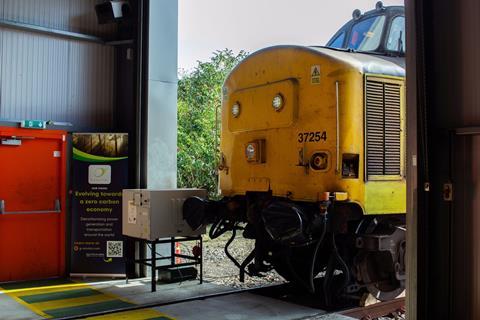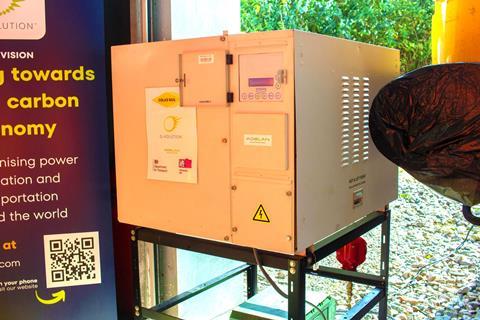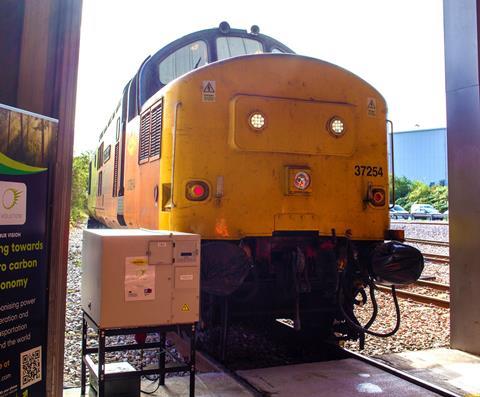
UK: Colas Rail has collaborated with G-Volution to demonstrate the use of solid oxide fuel cells running on biofuel to generate power for the auxiliary systems on a Class 37 locomotive, reducing the load on the main engine.
SOFCs use bio-fuels such as Bio-LPG, Bio-LNG and hydrogen to generate electricity.

Simulations by the University of Birmingham using a 35 kW SOFC found that a typical Class 37 operation would reduce CO2e by 12% and fuel costs by 8%.
The SOFC produces no particulates or nitrogen oxides, and there is a significant reduction in noise and engine idling.

‘This trial has proven that a lower carbon option is available for auxiliary power generation’, said Colas Rail’s Head of Engineering & Compliance Paul Conway. ’It’s still early days for this technology but it’s an excellent start.’
The Decarbonising Auxiliary Load in Freight Today project was supported with £378 513 from the Department for Transport’s Innovate UK First of a Kind 2022 funding competition.
Participants included SOFC supplier Adelan Ltd, Aegis Engineering Systems (standards and approvals), DG8 (integration design), Pragmatex (project management), SBL Rail (systems engineering), Tully Engineering (emissions measurement) and the University of Birmingham (engineering support and modelling).



